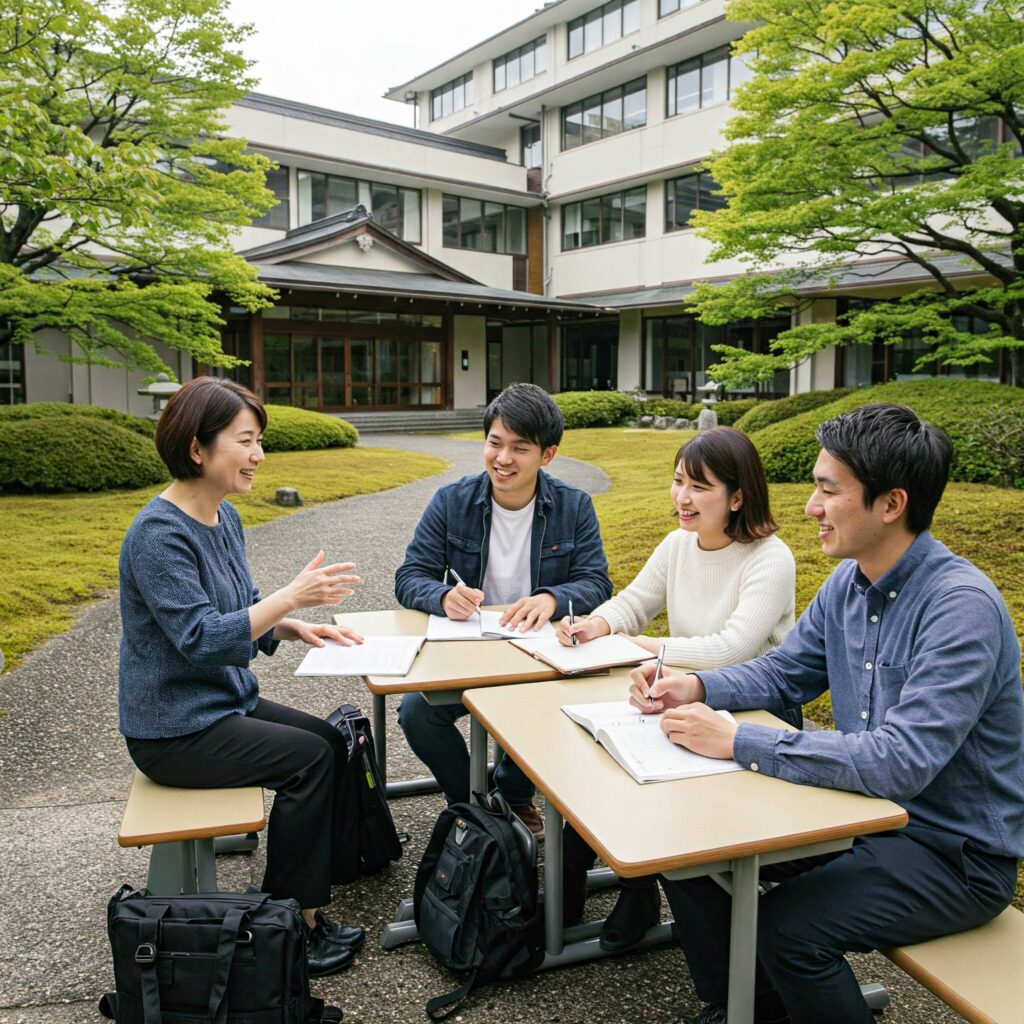Kyoto Komore International Institute is spearheading a comprehensive digital transformation that reshapes its educational delivery, administration, and student engagement across high school, undergraduate, and postgraduate levels. This initiative reflects a strategic response to global trends in higher education, positioning the Institute at the forefront of Japan’s digital education evolution and aligning with best practices observed in leading international institutions.
Strategic Vision for Digital Integration
Understanding that digital transformation is not merely about technology adoption but a fundamental rethinking of pedagogy and institutional operations, Kyoto Komore International Institute has developed a multi-year roadmap focused on flexibility, accessibility, and personalised learning. The Institute’s leadership recognises that today’s digitally savvy students demand interactive, flexible, and seamless educational experiences that transcend traditional classroom boundaries.
The strategy encompasses four core pillars: digital curriculum delivery, data-driven decision-making, operational efficiency, and enhanced student support services. This holistic approach ensures that technology amplifies human interaction rather than replaces it, fostering a vibrant academic community.
Flexible and Hybrid Learning Models
Building on global best practices, the Institute has implemented hybrid learning environments that blend in-person instruction with synchronous and asynchronous online components. Classrooms are equipped with state-of-the-art audiovisual technology, enabling real-time interaction between on-campus and remote students. This flexibility caters to diverse learning preferences and life circumstances, making education more inclusive.
For example, high school students can access supplementary digital modules tailored to their pace and interests, while undergraduates benefit from flipped classroom models that encourage active learning and critical thinking. Postgraduate programmes integrate virtual seminars and collaborative platforms to facilitate international research partnerships and peer engagement.
AI and Data Analytics Empowering Personalisation
Kyoto Komore International Institute leverages advanced data analytics and AI tools to personalise learning pathways and optimise academic outcomes. Learning management systems track student engagement, performance, and progression in real time, enabling educators to identify learners at risk and tailor interventions promptly.
AI-driven curriculum development tools assist faculty in creating up-to-date, relevant course materials by scanning vast educational databases and automating quiz and assignment generation. This reduces faculty workload and ensures content remains aligned with evolving academic standards and industry needs.
Predictive analytics also support administrative functions such as enrolment forecasting, resource allocation, and student retention strategies, enhancing institutional agility and responsiveness.
Smart Campus Initiatives and Digital Infrastructure
The Institute has invested significantly in transforming its campuses into smart environments that enhance both learning and operational efficiency. Internet of Things (IoT) devices monitor energy consumption, classroom utilisation, and facility maintenance, contributing to sustainability goals and cost savings.
Digital kiosks and mobile apps provide students with real-time information on class schedules, campus events, and support services, improving user experience. The integration of biometric access controls and secure cloud platforms ensures data privacy and campus safety.
Enhancing Student Services through Digital Innovation
Recognising that student success extends beyond academics, Kyoto Komore International Institute has digitised a broad spectrum of support services. Virtual counselling, career guidance, and tutoring are accessible 24/7 via online portals, accommodating diverse student needs and time zones.
The Institute’s digital transformation also includes an online job portal integrated with microcredential achievements, enabling students to showcase verified skills to prospective employers. This feature strengthens the link between education and employability, a critical concern in today’s competitive labour market.
Faculty Development and Change Management
To maximise the benefits of digital transformation, the Institute has prioritised comprehensive faculty training programmes. Workshops and continuous professional development sessions equip educators with digital pedagogical skills and familiarity with emerging technologies.
Change management initiatives address resistance by fostering a culture of innovation and collaboration. Faculty and staff are actively involved in co-designing digital tools and workflows, ensuring solutions meet practical needs and enhance job satisfaction.
Measuring Impact and Continuous Improvement
Kyoto Komore International Institute employs robust metrics to assess the effectiveness of its digital transformation. Key performance indicators include student engagement rates, academic performance, retention, and satisfaction scores, as well as operational efficiencies and environmental impact.
Regular feedback from students, faculty, and administrative staff informs iterative improvements. The Institute also benchmarks its progress against global standards and participates in international consortia focused on digital education innovation.
Global Context and Future Outlook
This digital transformation aligns Kyoto Komore International Institute with world-renowned universities leading in digital education, such as Massachusetts Institute of Technology, Stanford University, and the University of Oxford. By embracing hybrid learning, AI-driven personalisation, and smart campus technologies, the Institute ensures its graduates are equipped with the skills and adaptability required in a rapidly changing global landscape.
Looking forward, the Institute plans to expand its use of emerging technologies such as extended reality (XR) for immersive learning experiences and blockchain for secure credentialing. These advancements will further enhance educational quality, accessibility, and trust.

Leave a Reply